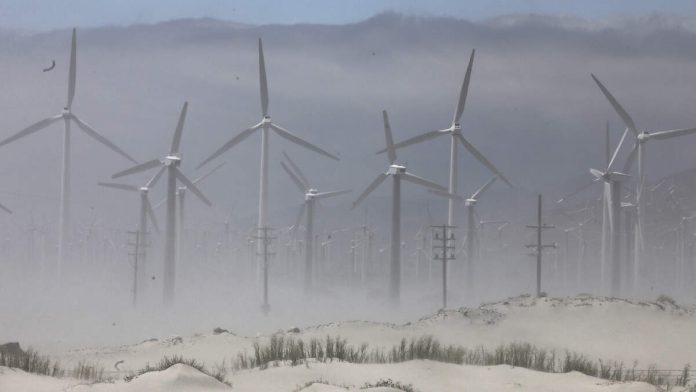California’s efforts to transition its electric grid to 100% renewable energy by 2045 face new challenges following the signing of a budget law by President Donald Trump. The law alters federal tax incentives, potentially affecting the viability of new solar and wind projects in the state. These changes could delay or cancel 11 major solar projects and one onshore wind project across California’s Central Valley, Inland Empire, and Northern California, as reported by CalMatters.
The new law shortens the timeline for developers to obtain tax credits, with most now expiring at the end of 2027 instead of 2032. Additionally, the law restricts access to tax credits for projects using major components from China or other “foreign entities of concern.” This move could significantly impact California’s solar and wind industries, as they heavily rely on such components.
According to PBS NewsHour, the law’s expedited timelines for tax credits pose a substantial challenge for the renewable energy sector, potentially jeopardizing the development of new projects. Industry experts warn that the changes could lead to higher electricity costs for consumers, with estimates suggesting an increase of over $100 per household annually.
Despite these setbacks, California remains committed to its renewable energy goals. Governor Gavin Newsom emphasized the state’s achievements in reducing reliance on fossil fuels, noting that nine out of every 10 days in 2025 have been powered by non-fossil fuels for part of the day. The state’s energy commissioner, Nancy Skinner, criticized the federal law as a “job killer” but reaffirmed California’s dedication to clean energy.
The law also favors traditional energy sources, such as oil, gas, and coal, by ending long-standing federal support for solar and wind power. It opens federal lands and waters to increased oil and gas drilling and reduces royalties for producers, as detailed by CNBC. This shift in policy could have long-term environmental impacts, increasing greenhouse gas emissions and contributing to climate change.

Recent Comments